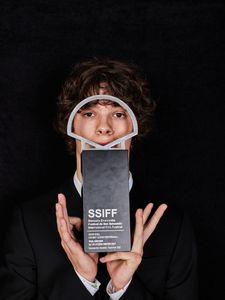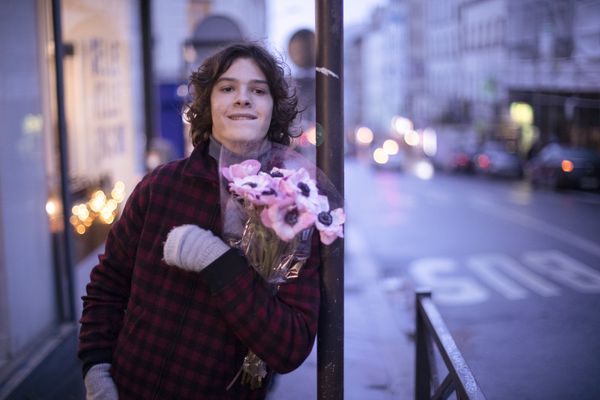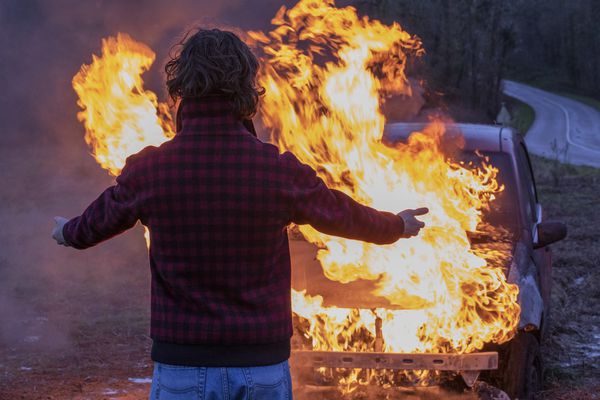Honoré sat down to talk about the film at the San Sebastian Film Festival alongside his young star Kircher, who went on to win the festival’s acting Silver Shell exaqueo with La Maternal’s Carla Quílez.
The biographical element could have put pressure on his young star but Kircher says Honoré’s approach and the five months of preparation time they had gave him confidence, adding: “I knew I could trust him 100%.”
 |
| Christophe Honoré: 'I wanted to be faithful to what had happened. But also I wanted to speak in general terms about young people, and about their mental health' Photo: Jean-Louis Fernandez |
Speaking about his approach, Honoré says that discipline was important and “to speak from sincerity, from honesty”.
He adds he wanted to bring back to today, the feelings he had when this happened to him at age 17. He adds: “But it is also true that I wanted this to be told by a young person today, somebody who is going to be very different from me. And that is why I put it on Paul's shoulders because I wanted this anyhow to be told from the perspective of a young person today.”
The scripting is important to the film but so are the moments when silence is allowed to intervene.
Honoré says: “Something that I always try to do with each film I make is to be able to use one single language, to give the viewers the possibility to listen to just one language. So whenever I write dialogue, I want all my characters to be speaking that same language. To give you an example, I think a film that succeeds in that is Jean Eustache’s The Mother And The Whore (La Maman Et La Putain).
“For me too, there were certain moments in which I had to take refuge in silence. And for a very long period of time, even longer than I portrayed in the film. In my films there is a lot of dialogue but it is true that I always need to bring in that moment of silence and maybe that is one of the moments in my films that I prefer.”
 |
| Paul Kircher with his Silver Shell for acting Photo: Jorge Fuembuena |
“I myself have a 17-year-old daughter, and I have seen her through the pandemic, wearing her mask, being locked at home without being able to see her classmates. And I think that all of that has been quite traumatic. And I am sure that that will end up having consequences for our young people. And I think that that has put them into a situation of vulnerability. They now feel that they are in a hostile world where they do not belong where they have to find their own place.
“That's on the one hand, but on the other hand, I also wanted the film to be hopeful.That is why, at the end of the film, there is a song he's singing about the shells scattered on the sand after the storm.They are not any longer in the sea, they will never be able to go back into the sea those shells that are now on the sand. At the end of the day, I think that as adults, we have the duty to protect young people in their vulnerability.”
The song is by an Italian singer Andrea De Lazlo De Simone - you can listen to it here.
Honoré adds: “Very often when you write a script, suddenly you see a movie and think, ‘Oh, it's exactly what I’m doing’, so you say, ‘Okay, so it is not a good movie because it already exists.’ But by chance, this time it was a song and I can accept that the song is already my movie. But it was very important for me to have it in the movie.”
Winter Boy will play at New York's Rendez-Vous with French Cinema on March 9 and 11. Read what Vincent Lacoste told us about approaching his character here.























